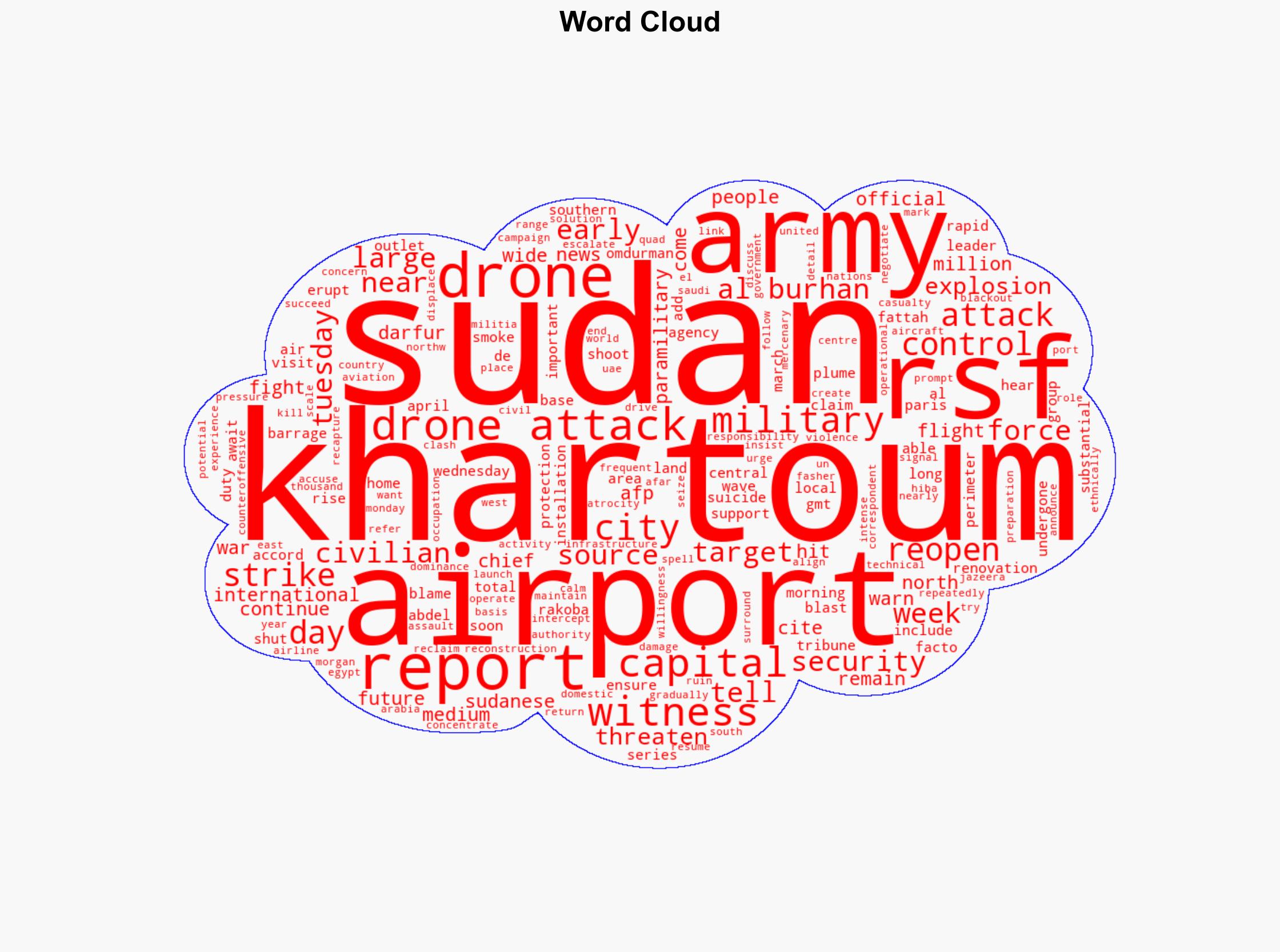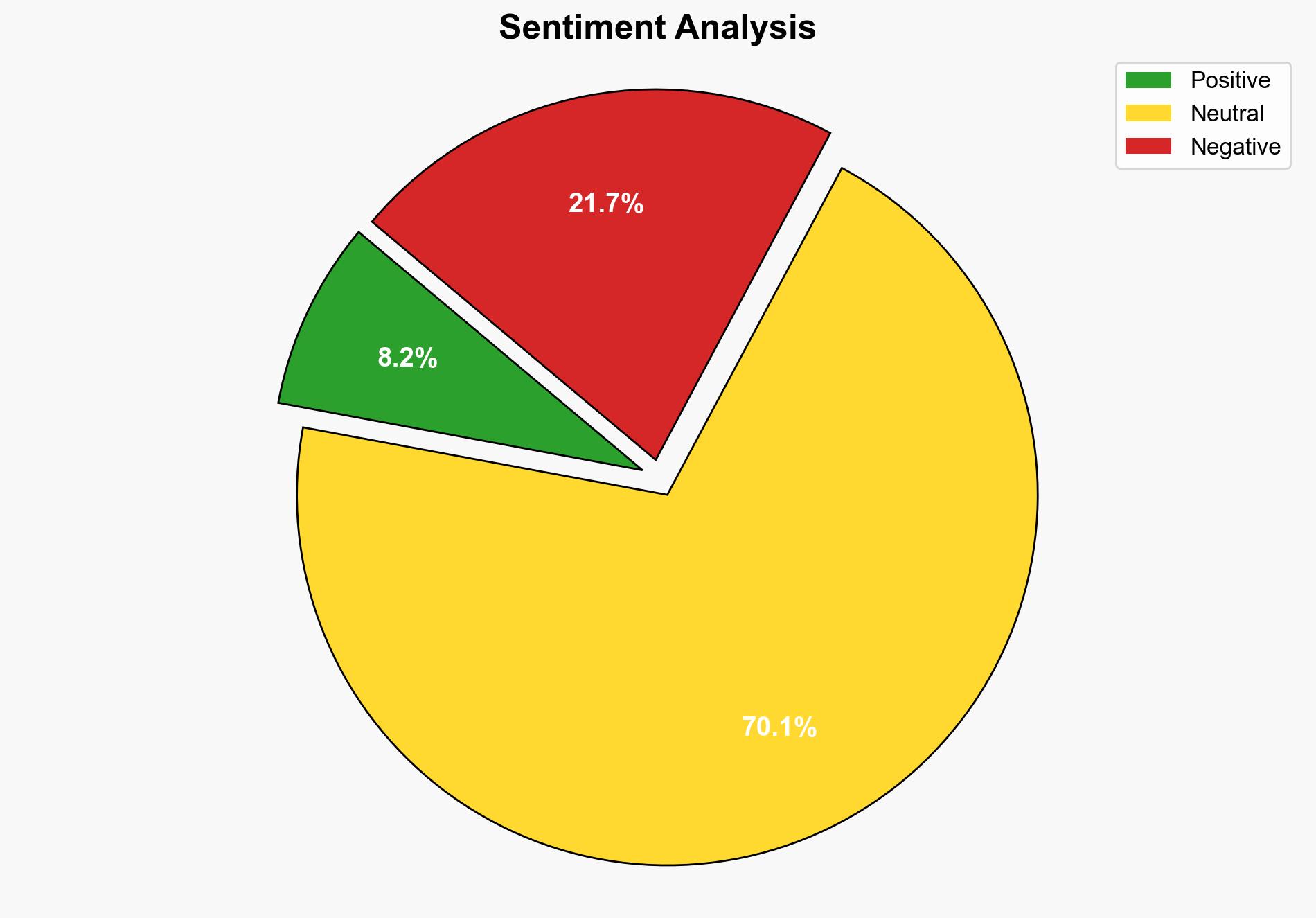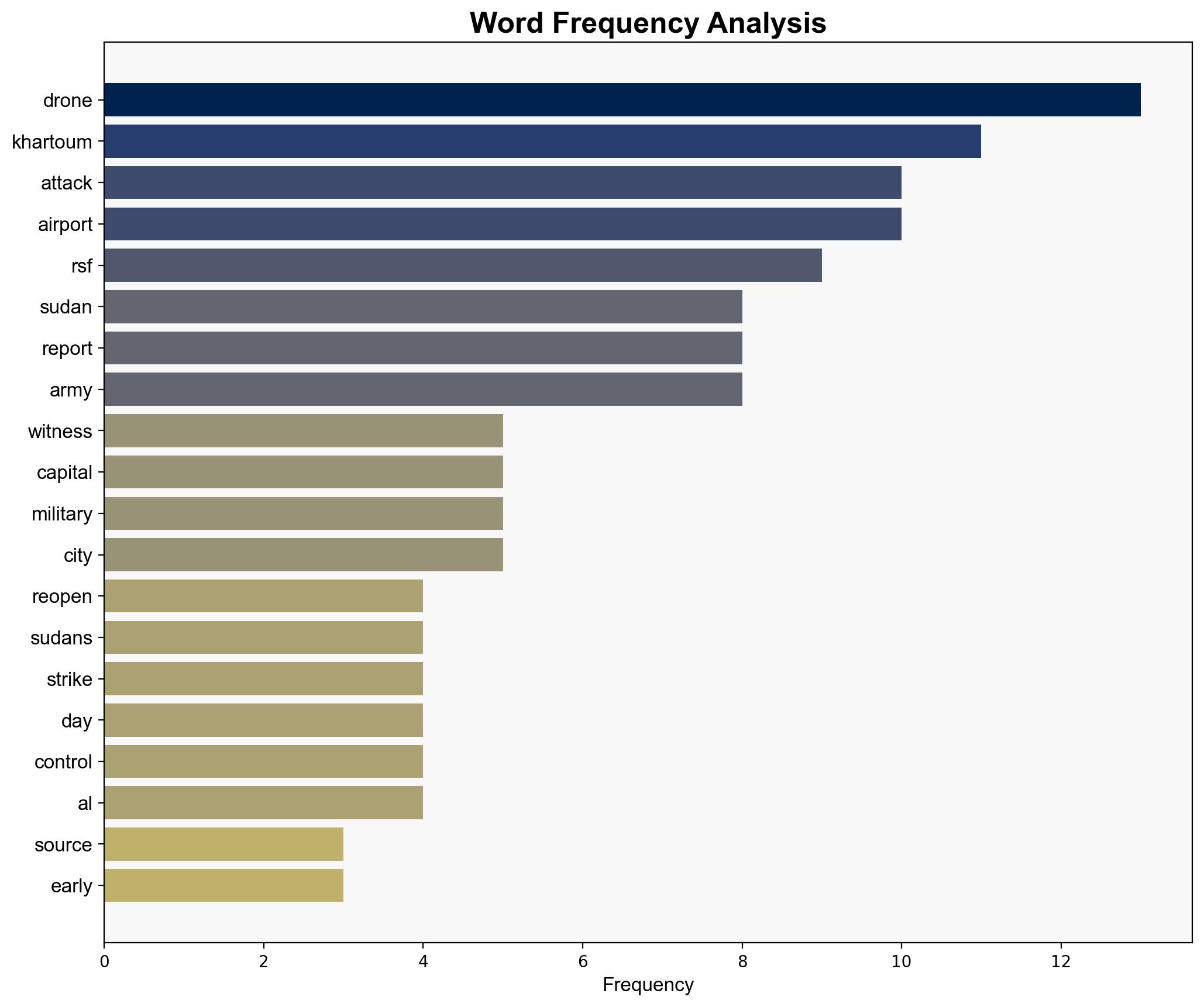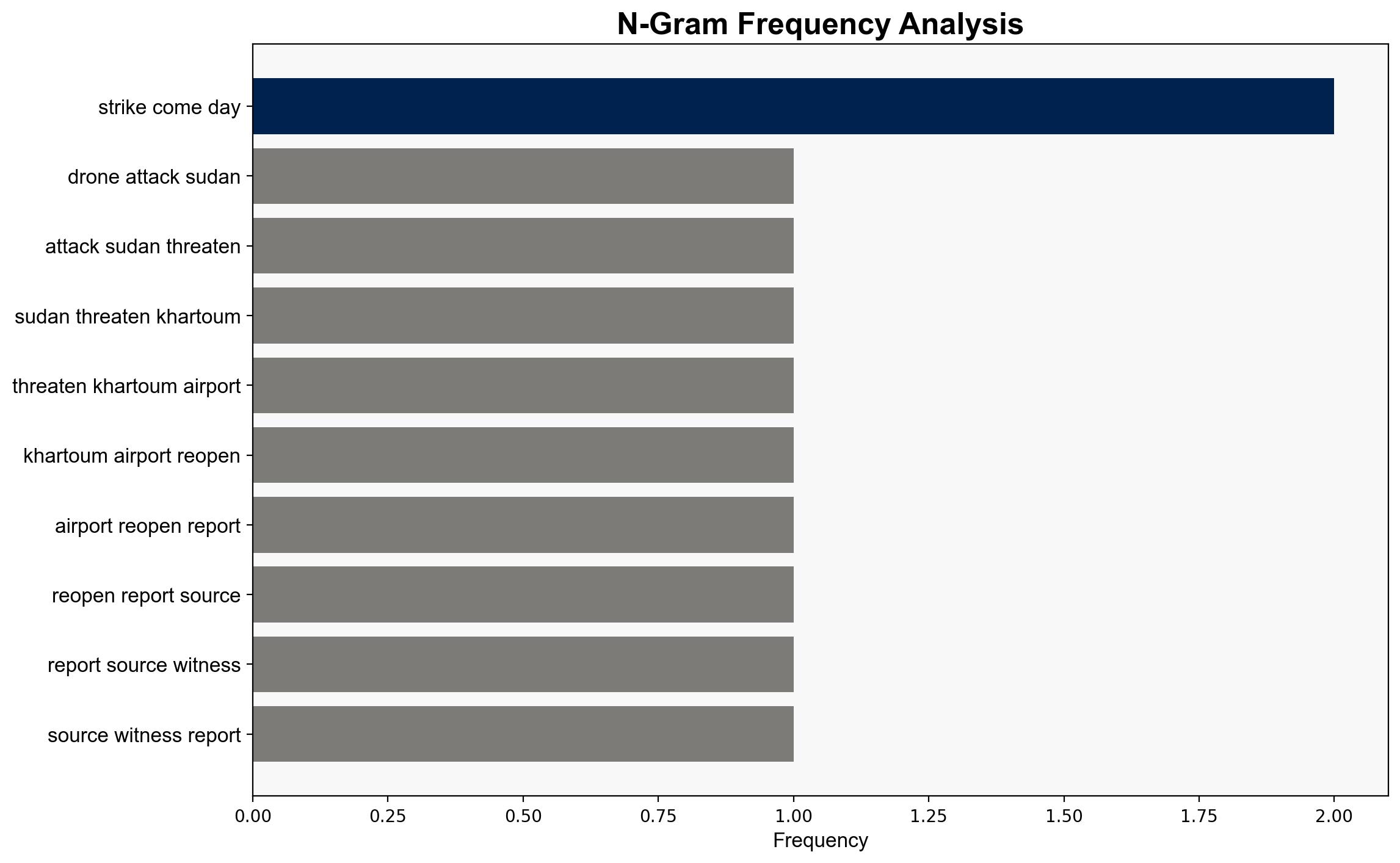Drone attack in Sudan threatens Khartoum airports reopening Reports – Al Jazeera English
Published on: 2025-10-21
Intelligence Report: Drone attack in Sudan threatens Khartoum airports reopening Reports – Al Jazeera English
1. BLUF (Bottom Line Up Front)
The most supported hypothesis is that the Rapid Support Forces (RSF) are using drone attacks to disrupt the reopening of Khartoum International Airport to undermine the Sudanese army’s control and project power. Confidence level is moderate due to the complexity of the conflict and limited direct evidence. Recommended action includes increasing surveillance and intelligence-sharing with regional allies to monitor RSF activities and support diplomatic efforts for conflict resolution.
2. Competing Hypotheses
1. **Hypothesis A**: The RSF is conducting drone attacks to prevent the reopening of Khartoum International Airport, aiming to disrupt the Sudanese army’s operations and assert their influence over the capital.
2. **Hypothesis B**: The drone attacks are part of a broader strategy by external actors to destabilize Sudan and prevent the consolidation of power by any single faction, using RSF as a proxy.
Using ACH 2.0, Hypothesis A is better supported due to the RSF’s history of targeting military and civilian infrastructure and their strategic interest in maintaining leverage in Khartoum.
3. Key Assumptions and Red Flags
– **Assumptions**: It is assumed that the RSF has the capability and motive to conduct these drone attacks. It is also assumed that the Sudanese army’s control over Khartoum is fragile.
– **Red Flags**: Lack of direct evidence linking RSF to the specific drone attacks. Potential bias in witness reports and media coverage, possibly influenced by political affiliations.
– **Blind Spots**: Limited insight into the role of external actors and their influence on RSF strategies.
4. Implications and Strategic Risks
– **Escalation**: Continued drone attacks could lead to increased military confrontation in Khartoum, risking civilian casualties and further destabilization.
– **Economic Impact**: Disruption of airport operations could hinder humanitarian aid and economic recovery efforts.
– **Geopolitical**: Potential for regional spillover if neighboring countries perceive the conflict as a threat to their stability.
– **Psychological**: Continued attacks could erode public confidence in the government’s ability to maintain security.
5. Recommendations and Outlook
- Enhance aerial and cyber surveillance to detect and neutralize drone threats before they reach critical infrastructure.
- Engage in diplomatic efforts to bring RSF and the Sudanese army to the negotiating table, leveraging international pressure.
- Scenario Projections:
- Best Case: Successful negotiations lead to a ceasefire and stabilization of Khartoum.
- Worst Case: Escalation of conflict results in a humanitarian crisis and regional instability.
- Most Likely: Continued sporadic drone attacks with intermittent negotiations and military skirmishes.
6. Key Individuals and Entities
– Abdel Fattah al-Burhan
– Rapid Support Forces (RSF)
– Sudanese army
7. Thematic Tags
national security threats, cybersecurity, counter-terrorism, regional focus





